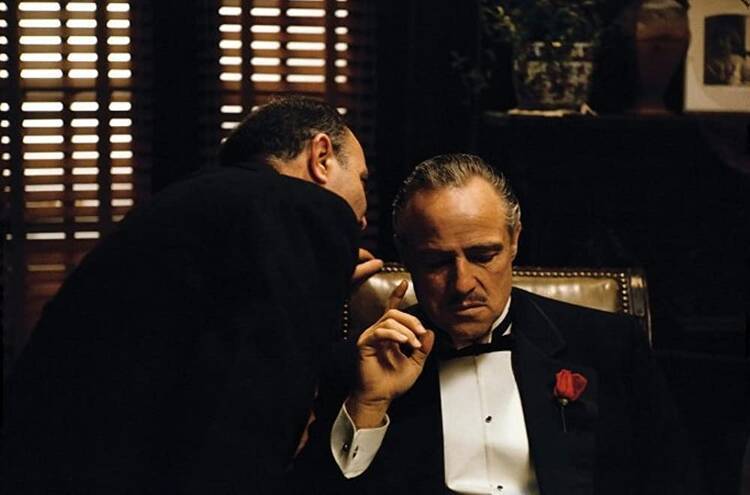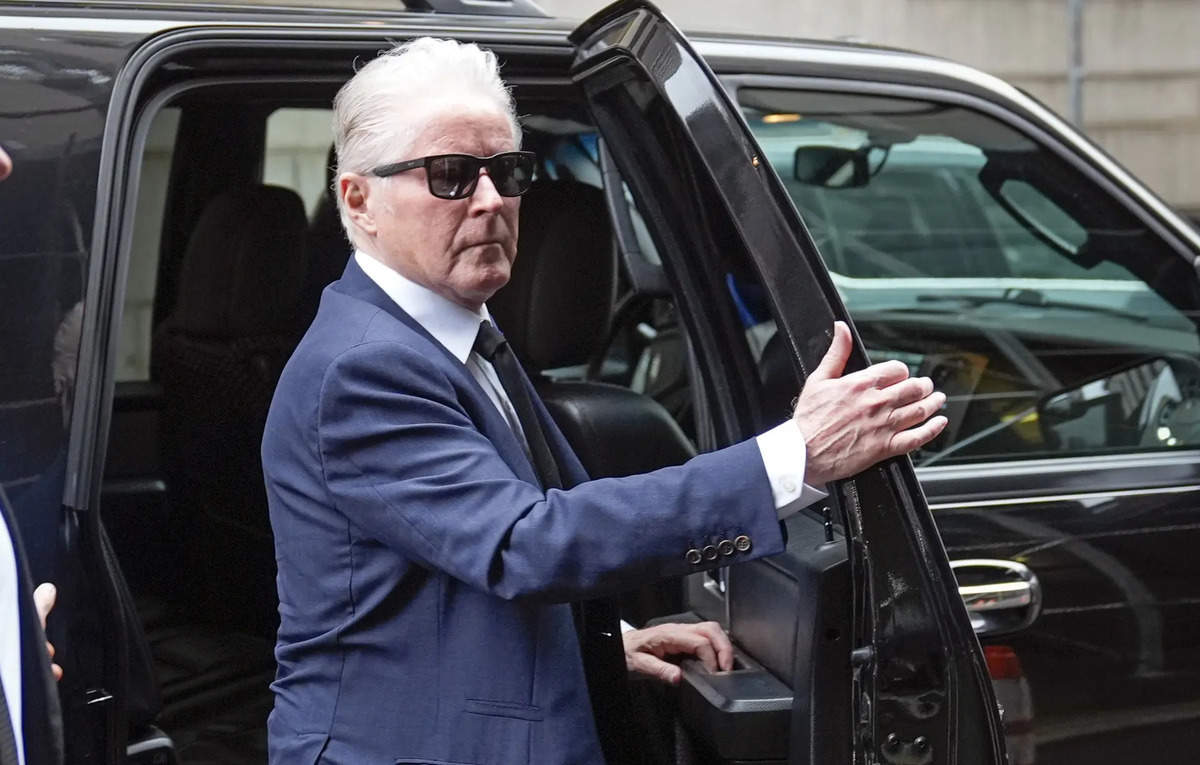Catholic Film Club: Why do we glorify The Godfather?

I have to confess something: before last week, I had never watched The Godfather in its entirety.
I had seen parts of it before, not to mention the countless references and parodies in other films. But I was always secretly ashamed – especially because I have a reputation for knowing about films – that I had never watched any of the defining American films in their entirety.
So for the next three weeks, in this column, I’ll be covering Francis Ford Coppola’s famous trilogy one film at a time. Even if you’ve seen these films a hundred times (and I bet some of you have), I invite you to join me in watching as I look at them with fresh eyes and from a Catholic perspective. I hope you won’t turn down that offer.
The Godfather (1972) is based on the novel of the same name by Mario Puzo (Puzo co-wrote the screenplay with Coppola). Set in the 1940s, the film centers on the New York-based Corleone family and its patriarch, Don Vito Corleone (played by Marlon Brando). His older sons – the competent but lecherous Sonny (James Caan) and the weak-willed Fredo (John Cazale) – are involved in the family business, but his youngest – war hero Michael (Al Pacino) – tries to forge his own path. But when his father is nearly killed by his rivals, Michael embarks on a quest for revenge that will lead to him taking his father’s place as mafia boss.
I know a lot of boys (and it is always Guys) who think The Godfather is an aspirational story and quote lines about family, loyalty and respect as if they were proverbs. This, I believe, is what gives the film a reputation for “glorifying the Mafia.” While Coppola certainly portrays the Corleones as wealthy, he doesn’t fixate on their lavish lifestyle (if anything, a Hollywood producer’s mansion is filmed with more greed for wealth than the Corleones’ home). What really makes The Godfather an appealing fantasy is its seductive vision of power and its justification.
Vito Corleone is so powerful that he rarely has to raise his voice above a murmur to get his way. He commands respect, but that respect is born of fear. In the film’s classic opening scene, Vito is insulted when a supplicant asks him to kill two men who attacked his daughter. This is not because he rejects violence, but because the supplicant speaks to him as if he were a criminal. Only when he respectfully requests, uses the Catholic title “godfather,” and kisses Vito’s ring, does the Don agree. As he orders his men to carry out the vendetta, the Don warns them not to get carried away: “We are not murderers.”
Of course, they Are Murderers – and gangsters, extortionists and human traffickers. The reason the Corleones can and do consider themselves a class above other criminals is because of the appearance of class, venerability and devout Catholicism that belies the nastiness of their business. Every sinner invents justifications for his sins. Vito justifies the carnage his business causes because he supports his family, helps his community and follows a personal code of ethics.
“The Godfather” suggests that all power works like this: a facade of venerability that conceals the inherent violence that allows one to kill or buy one’s way to the top – or both. By the end of the film, Michael gives in to this cruel logic. When he compares his father to “any powerful man… like a president or a senator,” his girlfriend Kay (Diane Keaton) calls him naive. “Presidents and senators don’t let men kill,” she says. Michael looks at her pityingly. “Who’s naive, Kay?”
If The Godfather presents a fantasy, it is a dark one: power without any moral constraints, wealth at any price, respect that actually comes from fear of death. The fact that audiences find the story ambitious is more a reflection of us as fallen people than of the film itself. If anyone is glorifying the Mafia, it is us.
“The Godfather” is streaming on Paramount+.



